When you love food and are passionate about helping others, working as a restaurant manager might be the perfect job for you. You’ll get to manage staff, schedule shifts, and handle customer service needs on top of being responsible for ordering inventory, monitoring profit margins, tracking expenses, and other essential tasks. A restaurant manager resume is your first step toward landing the ideal job in this field. It would help if you showcased your most significant strengths when applying for any position, especially one that will involve many people daily. An effective resume can help you stand out from the crowd of applicants and increase your chances of getting an interview. In addition, an excellent outline makes it easy for hiring managers to see what you can bring. This guide will walk you through how to write an effective resume highlighting your most impressive skills and experience and tips for personal branding if you’re ready to begin your career path sooner rather than later.
Restaurant Manager Resume Example

Download This Restaurant Manager Resume as PDF
Cook Resume Example
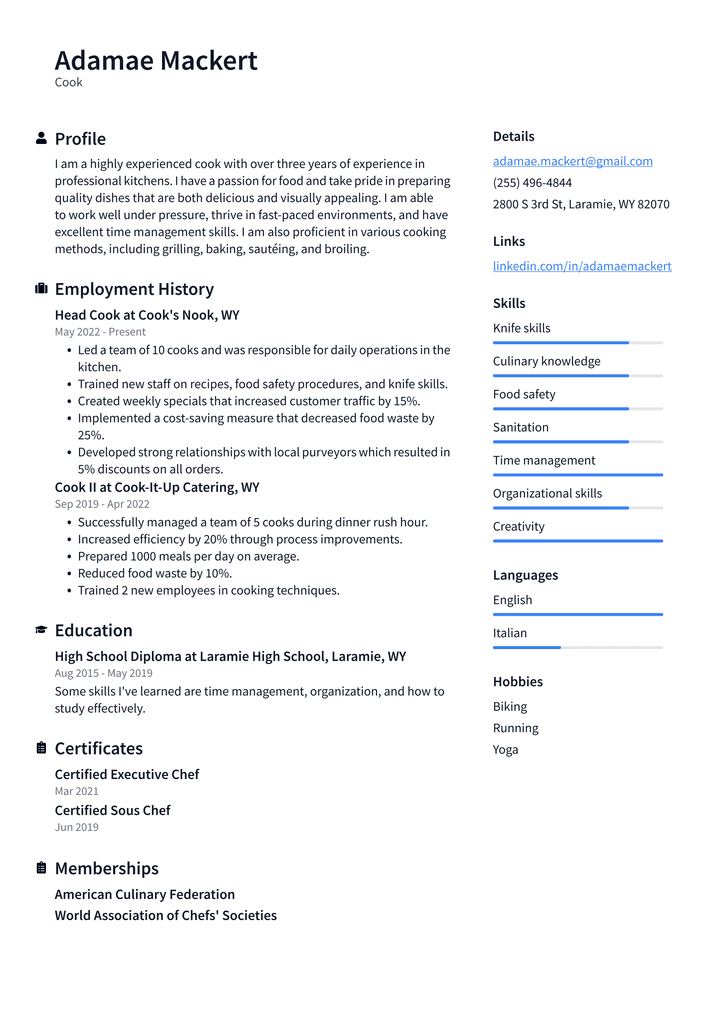
Download This Cook Resume as PDF
Waiter Resume Example
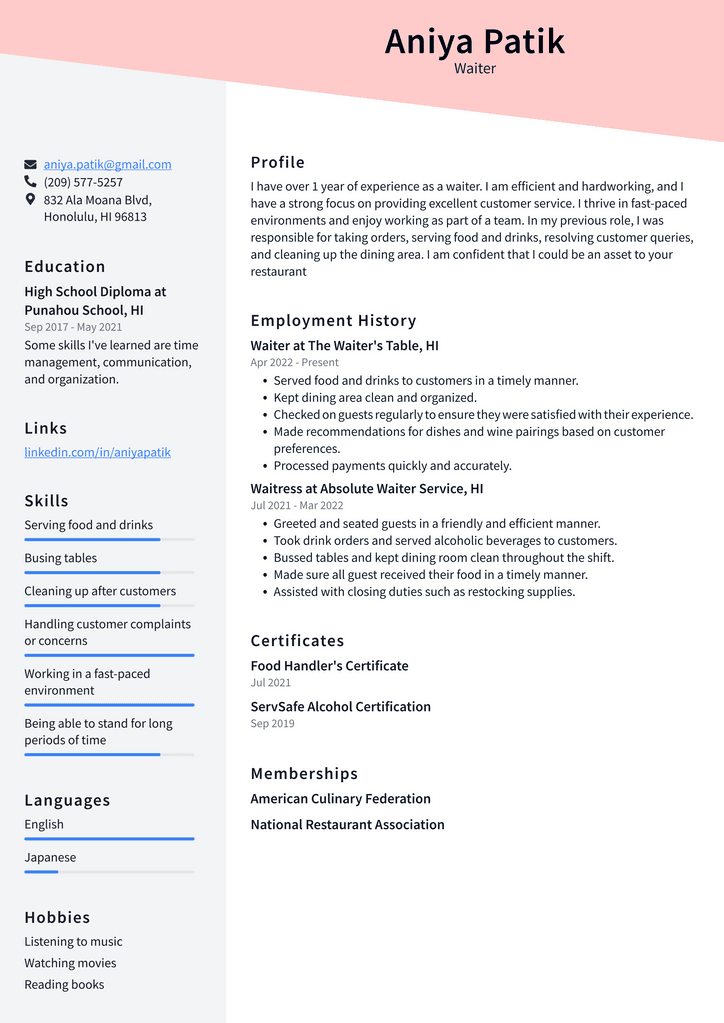
Download This Waiter Resume as PDF
Chef Resume Example
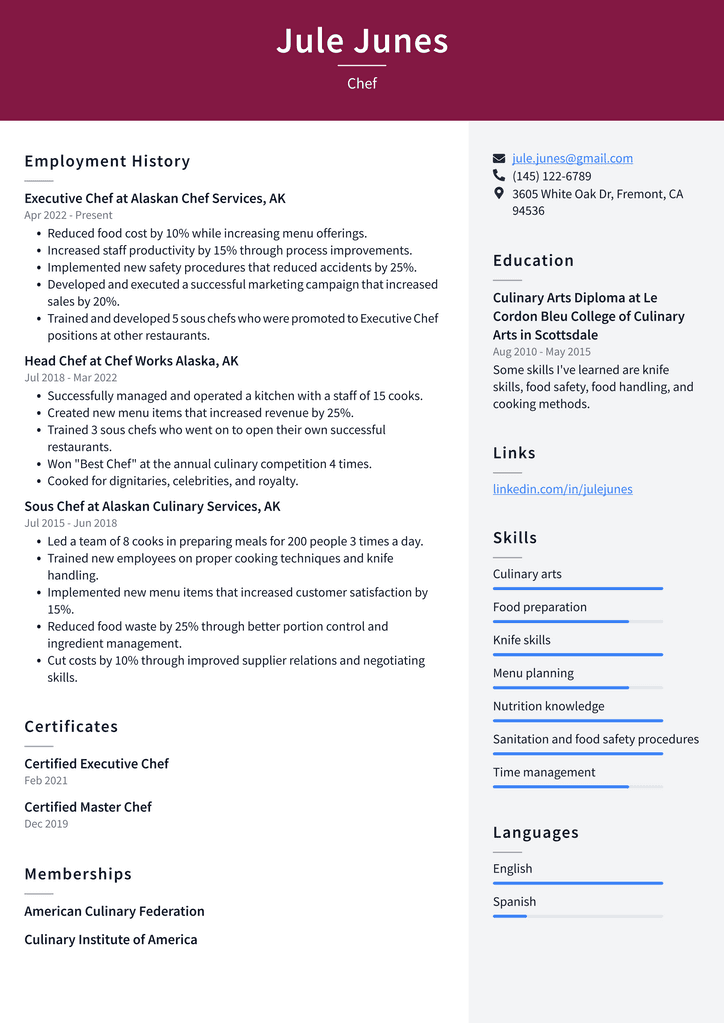
Download This Chef Resume as PDF
Bartender Resume Example
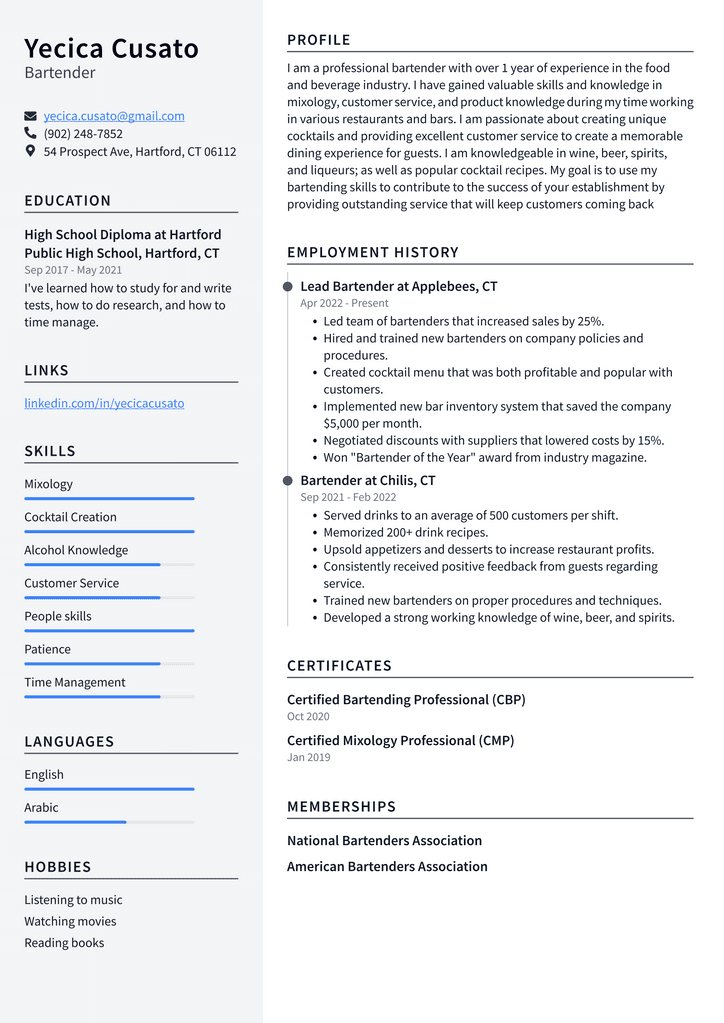
Download This Bartender Resume as PDF
Restaurant Owner Resume Example
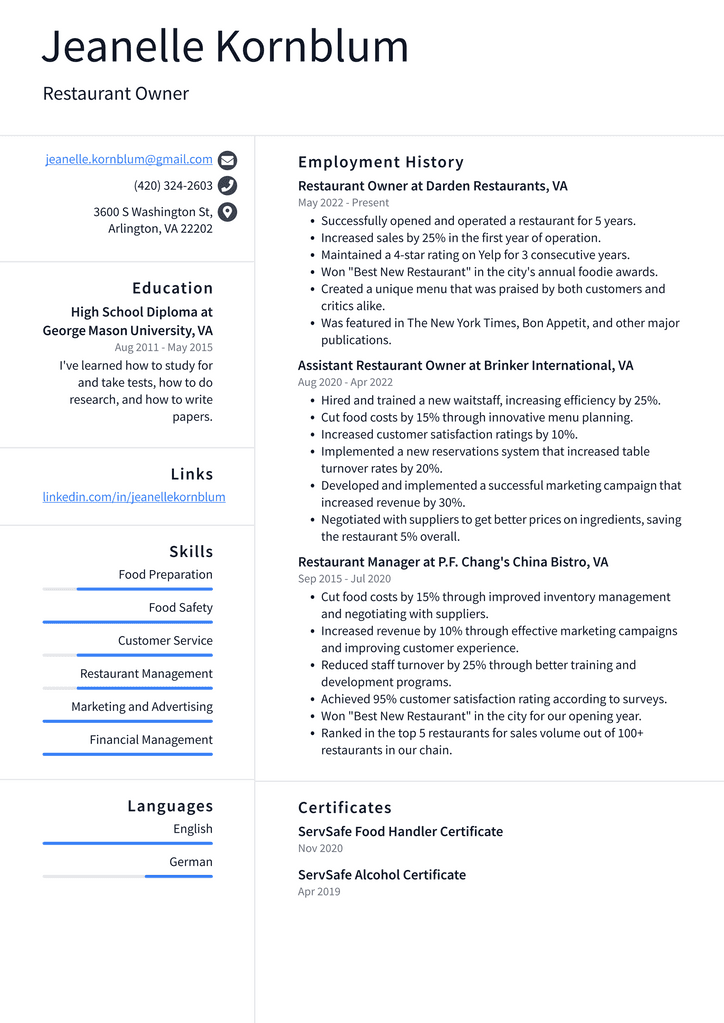
Download This Restaurant Owner Resume as PDF
Host Resume Example
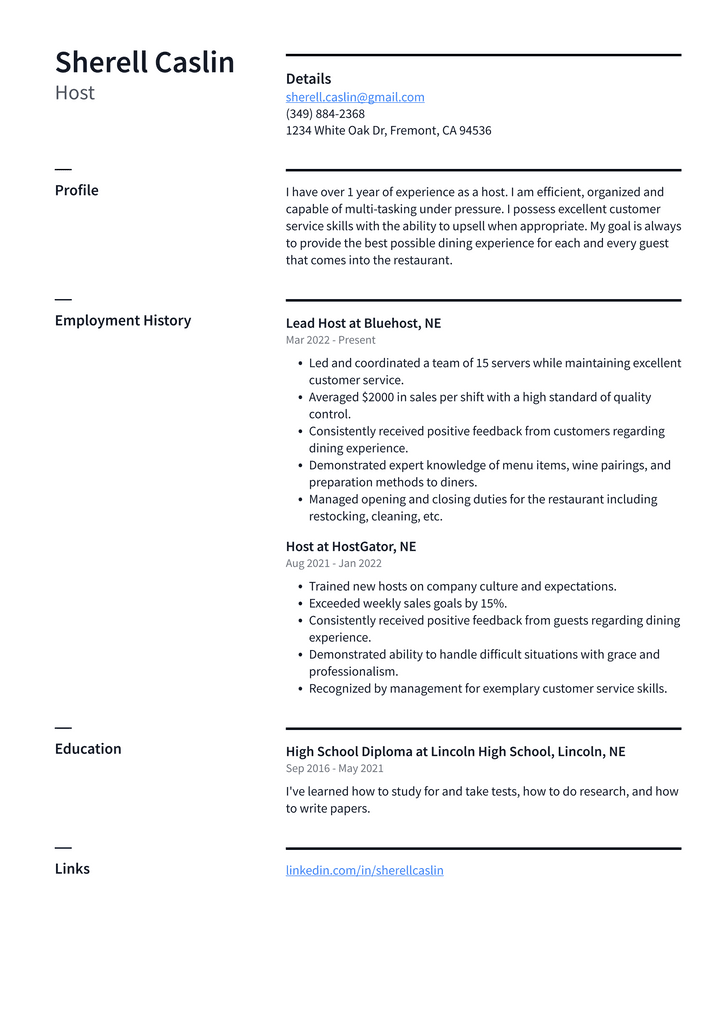
Download This Host Resume as PDF
What to Include in Your Restaurant Manager Resume
A resume is an essential tool in your job hunting process and can make a difference in whether or not you are called in for an interview. Creating a clear and concise resume highlighting the skills and experience that make you the best candidate for the position is necessary. Here are some tips for what to include in your restaurant manager resume: · Summary of Qualifications – Start with a strong summary of the skills and qualifications that make you an ideal candidate. What makes you stand out from other job seekers in this field? · Professional Experience – Next, list the positions you’ve held and the skills you’ve built up over time. What projects have you led or been deeply involved with? What management or supervisory roles have you held? What has your average day looked like on the job? What achievements have you achieved in past positions? · Education – Include a sentence or two about any degrees or certifications you’ve earned. What associations do you belong to? What philanthropic efforts do you regularly participate in? What volunteer work have you done in the past?
Summary of Qualifications
A resume is your chance to show hiring managers what you’re capable of, so you need to prove that you’re a strong candidate immediately. Your resume’s first paragraph should summarize your qualifications for the job. This is not the place to restate your work history. Instead, it would help if you used this section to highlight your most impressive skills and strengths that make you the best candidate for the job. Here are some tips for writing a strong summary of qualifications for a restaurant manager’s resume: · Start with a powerful statement – Begin your summary with a strong message that summarizes your best qualities and skills. What are you incredibly passionate about? What sets you apart from other job seekers? What are you genuinely excited about? · Include quantifiable results – Show hiring managers that you’ve achieved tangible results in the past with quantifiable examples. What have you done in the past that’s truly remarkable? What numbers have you improved? What problems have you solved? What new initiatives have you been deeply involved in? · Be concise – A practical summary is short enough to hold someone’s attention while long enough to show your best qualities. Aim for a one- to the two-sentence summary highlighting your best qualities and skills.
Professional Experience
Once you’ve hooked your hiring manager with a strong summary of qualifications, it’s time to dive into the details of your work history. This is to list your past positions, the years you held them, the companies you worked for, and any relevant skills you’ve acquired. You can also list your supervisor’s name, company, and location for each position. This section will help hiring managers understand how your experience applies to the job you’re applying for now. Again, here are some tips for writing a solid section about your professional experience for a restaurant manager resume: · Start with your most recent position – Begin your professional experience section with the most recent position you’ve held. What were you responsible for on the job? What is your average day like in this position? What are the essential tasks you perform? · Back up your skills – Next, list other positions you’ve held, including their years and companies. What skills have you acquired over time? What are you genuinely passionate about? What have you excelled at in previous jobs? What are your strengths? · Highlight your achievements – What notable achievements have you achieved in the past? What projects have you managed or been deeply involved with? What new initiatives have you been deeply involved in? What numbers have you improved?
Education
Finally, a restaurant manager’s resume should include a sentence or two about your educational background. What degrees have you earned? What certifications do you hold? What schools did you attend? What philanthropic efforts do you regularly participate in? What volunteer work have you done in the past? An educational section in your resume will give hiring managers a better idea of who you are and what you’re genuinely passionate about. Here are some tips for writing a robust educational section in a restaurant manager’s resume: · Include your degree – Be sure to start your academic team with your degree. What schools did you attend? What fields of study did you focus on? What was your average grade? · Mention relevant courses – Next, list any relevant courses or specializations you’ve earned. What associations do you belong to? What philanthropic efforts do you regularly participate in? What volunteer work have you done in the past?
References
Next on your restaurant manager resume, include a references section to show hiring managers that you’re genuinely committed to the job and want to succeed. This is the place to list the names of people who can vouch for your skills and work ethic. You can list managers and colleagues who have worked with you in the past and managers and supervisors you’re currently working with. Here are some tips for writing a strong references section in your restaurant manager’s resume: · Identify each reference – Start by listing each reference’s name, followed by their title (if they have one). What years did you work with this person? What departments did they work in? What did you do together? What projects did you manage together? What achievements did you achieve together? · Include professional references – Finally, make sure you include professional references. What managers or supervisors are you currently working with? What managers or supervisors have you worked for in the past? What managers or supervisors can vouch for your skills and work ethic?
Conclusion
Now that you’ve written an excellent restaurant manager resume, it’s time to start applying to jobs. Remember to use the cover letter guide we’ve outlined in this guide to help write a compelling cover letter that goes even further to sell your skills. Keep these tips in mind as you craft your resume to help you grab hiring managers’ attention from the Start and get called in for interviews. A strong resume can make a difference as you begin your job search. With the right restaurant manager resume, you can show hiring managers that you’re genuinely excited about this career and ready to make a real difference in your community.